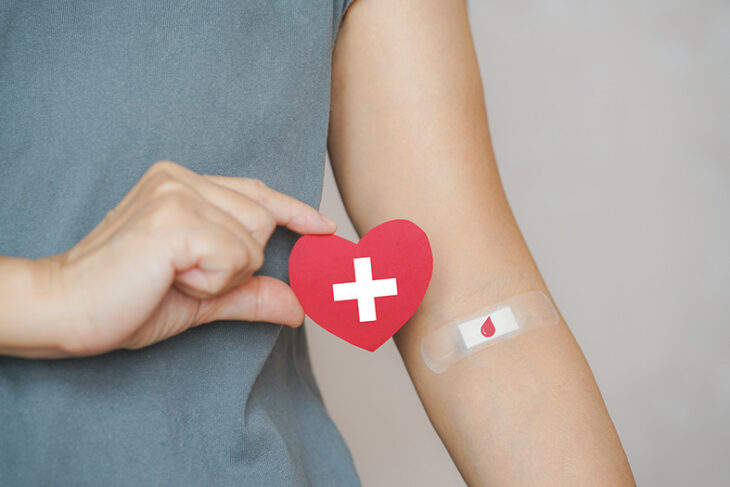In January, the American Red Cross declared an emergency blood shortage, as it experienced the lowest number of people donating blood in the last 20 years. Every two seconds in the United States, someone needs blood, and there unfortunately is no substitute for human blood products. About 38% of U.S. adults are eligible to give blood, but less than 5% of eligible people donate.
Consider that one blood donation can help save three lives. Besides helping your community and fellow citizens, donating has some benefits that you may not realize:
1. A FREE HEALTH SCREENING
Before you donate blood, your vitals will be checked to ensure you are fit enough to donate. This may reveal hypertension or heart arrhythmia that requires medical attention. Additionally, you will be screened for infectious diseases.
2. A HEALTHIER CARDIOVASCULAR SYSTEM
Regular blood donation is associated with lower blood pressure and lower risk of heart attack and stroke. One recent study found that regular blood donors had an 88% reduced risk of heart attacks compared to non-donors. One explanation may be that donating blood decreases the viscosity of your blood. Increased viscosity can increase the likelihood of blood clots, heart attacks and strokes.
3. A DECREASED RISK OF CANCER
In recent years, the understanding of the role of iron in cancer has advanced significantly. As it turns out, iron plays a role in cancer development, progression and metastasis (or spread to other sites in the body). Blood donation is a way to decrease your body’s iron stores. A recent study from the Veterans Administration found that regular iron reduction through phlebotomy (essentially the same as blood donation) every six months for four to five years was associated with a 35% risk reduction of cancer, to include lung, colorectal and other types. Furthermore, in the patients who did develop cancer, those in the iron-reduction group had significantly less mortality from their cancer and all causes compared to the control group.
4. EASY CALORIES BURNED
Did you know that donating one pint of blood burns between 500-650 calories? This is the amount of energy your body expends to replace the red blood cells that were removed. What a bonus!
IF YOU DONATE …
- Drink plenty of water before and after. This will help make your veins easier to find and keep you from becoming lightheaded afterward.
- Exercising before donation is OK, but do not work out that day after donation.
- Eat well beforehand. Do not skip breakfast on donation day, and be sure to eat the snacks offered to you afterward.
- If you donate regularly, it is a good idea to take an over-the-counter iron supplement to prevent iron deficiency. One tablet daily or every other day is adequate. Take it with food, as it can cause nausea for some on an empty stomach.



